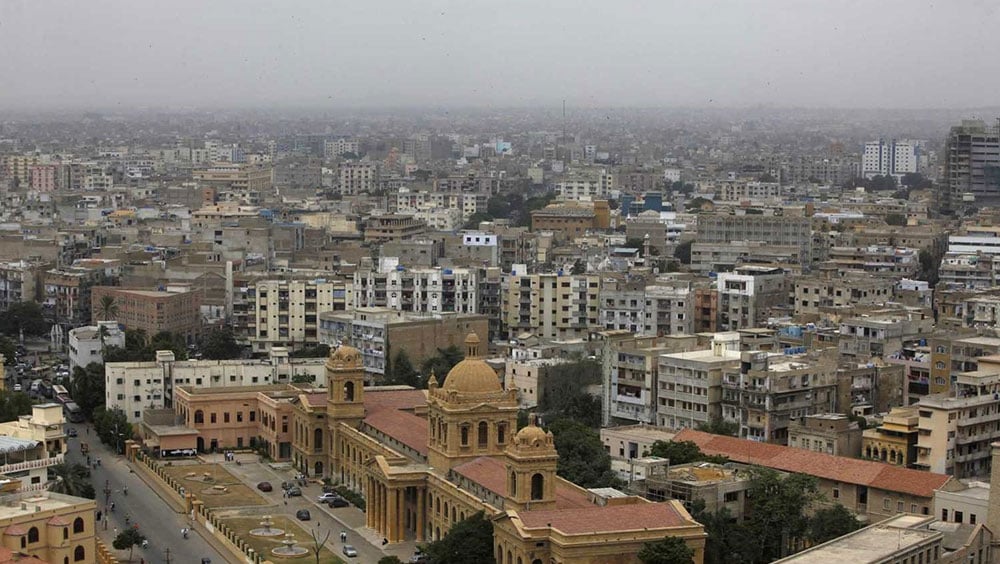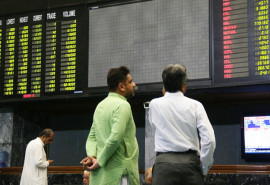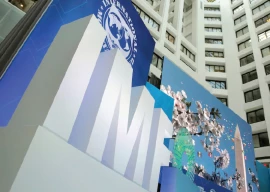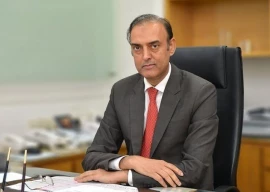
Pakistan has been facing a tumultuous business environment for the past many years. The Pakistan Tehreek-e-Insaf (PTI) government came to power with a slogan of change, hence the business and industrial community had pinned high hopes on it.
First year was too early to expect an economic miracle from the government but during its second year, scepticism started building when the cost of doing business soared and the tax system remained hostile to businessmen.
Later, the Covid-19 pandemic overshadowed all the economic aspects and the government realigned its policies to provide relief for the economic stakeholders.
The business and industrial community welcomed the measures taken to stabilise the ailing economy such as the reduction in interest rate to single digit, said Karachi Chamber of Commerce and Industry (KCCI) President Shariq Vohra.
He added that soaring inflation remained a major concern, especially because of the rising cost of basic utilities.
According to him, the hike in prices of fuel, electricity, gas and raw material has adversely impacted the cost of doing business and caused a ripple effect on all the commodities.
It has also pushed down purchasing power of the masses, which have already been reeling from rising unemployment and aftershocks of the pandemic.
However, several economic indicators have started reflecting that government policies are bearing fruit in the form of economic stability and increased business confidence.
The current account has been in surplus for the last three months, standing at $792 million in July-September 2020, a significant improvement over the deficit of $1,492 million in the same period of previous year.
Moreover, the current account surplus has eased pressure on the rupee, which was earlier on a declining trajectory. The currency has appreciated around 5% in the past couple of weeks to stand at a five-month high, which bodes well for the economy.
Apart from improvement in the current account, the weakening of US dollar against the currencies of trading partners of Pakistan also supports the recovery of the rupee.
The State Bank’s foreign currency reserves soared above $12 billion in September while exports of textile commodities inched up 2.92% in the first quarter of current fiscal year.
On the other hand, signs of recovery in economic growth are emerging with the uptick in activities in the automobile, cement, steel and fertiliser sectors.
Regarding Covid-19 lockdown in Karachi, the economic hub of Pakistan, there seemed to be a rift among the federal, provincial and municipal governments, which hurt chances of sustainable improvement, remarked the KCCI president.
This lack of unity has existed for a long time and it is one of the significant hurdles that has restricted the city’s development and growth.
“Even though the current government has undertaken many noteworthy initiatives in a number of areas with a good intention, the schemes have failed to deliver the promised results,” he said. “Businesses in Karachi ideally need an environment of political stability to flourish.”
According to him, achieving political stability in Karachi requires unity at different levels of governments with clearly defined jurisdictions and areas of responsibilities so that officials can work for the betterment of the city instead of indulging in blame game.
Pakistan’s economy is currently in a critical situation as the government is fighting the coronavirus outbreak while at the same time it is also making efforts to mitigate the negative impact of the virus on the economy.
Unfavourable environment
After coming to power, the current government spent the first year borrowing from friendly countries and negotiating a bailout package with the International Monetary Fund (IMF).
Under the bailout programme, the government was forced to take some strict measures such as increasing electricity and gas prices and raising duties on imports due to which inflation soared and reached a decade high in January 2020.
A few effective measures were also introduced by the government to steer ease of doing business and consequently Pakistan was ranked among world’s top 10 business climate reformers in the World Bank Doing Business Index 2020. The government also succeeded in narrowing the trade deficit.
“Businessmen appreciate the positive measures taken by the government but the business environment is still not optimally conducive,” said the KCCI president.
He listed the steps taken to help businesses tackle the fallout of the lockdown. First, he said, the government announced a Rs1.2 trillion coronavirus relief package, then it introduced the Chota Karobar scheme and subsidised electricity bills and finally, it announced a construction sector package to boost multiple industries.
The State Bank of Pakistan also sharply lowered the policy rate from 13.25% to 7.5% besides launching schemes for deferring payment of principal amount of loans and a refinance scheme for the payment of wages and salaries to company employees, he said.
To rehabilitate the broken infrastructure in Karachi, which was lashed by torrential rains and due to decades of negligence, the government also launched a trillion-rupee Karachi package.
“However, it is the implementation that counts and only time will tell how successful these schemes will be,” he said. “Still, a lot more needs to be done.”
Such steps of the government were appreciative but issues faced by the business community were related to cash flow, markup on loans, maturity of letters of credit, early refund of sales tax, payment of duty drawback and drawback of local taxes and levies, he pointed out.
Lower imports
Pakistan Industrial and Traders Association Front (PIAF) Chairman Mian Nauman Kabir commended the government’s efforts to contain the current account deficit but cautioned that surplus must not be achieved at the cost of industry and economic growth.
“Unfortunately, the turnaround is largely due to a drop in imports, leading to slowdown in growth after an unprecedented hike in the markup rate and rupee depreciation of over 40% in the past,” he said. “The huge decline in imports has slowed down overall economic activities, ultimately hitting the GDP growth rate.” He pointed out that Pakistan had begun to suffer even before the first Covid-19 case in late February in the country.
He elaborated that Covid-19 hit global markets and Pakistan also felt the impact in the form of slowdown in economic activities as a result of lower global trade and lockdowns in different countries, though not a single case had been reported in the country at that time.
“It is true that things have started to improve once again,” he said but added that the government had a huge amount of work to do considering the current political scenario in the country.
Businesses have kept on demanding an environment conducive for growth. The pandemic has provided an opportunity for Pakistani businesses to capture a substantial chunk of the international market as the global industry will take time to recover.
Since the global supply chain is still not back to normal, Pakistani businesses can make space for themselves in the international market.
However, if the businesses were not facilitated, Pakistan would remain behind others in the coming years, he said.
“In spite of various internal and external challenges in the past two and a half years, the prudent strategy adopted by the PTI government helped place the country’s economy back on the growth trajectory,” remarked Federation of Pakistan Chambers of Commerce and Industry (FPCCI) President Mian Anjum Nisar.
The writer is a staff correspondent
Published in The Express Tribune, November 2nd, 2020.
Like Business on Facebook, follow @TribuneBiz on Twitter to stay informed and join in the conversation.

1732071267-0/lana-(2)1732071267-0-405x300.webp)
1727242355-0/Diddy-(1)1727242355-0-165x106.webp)

1732063440-0/elon-(3)1732063440-0-165x106.webp)













COMMENTS
Comments are moderated and generally will be posted if they are on-topic and not abusive.
For more information, please see our Comments FAQ